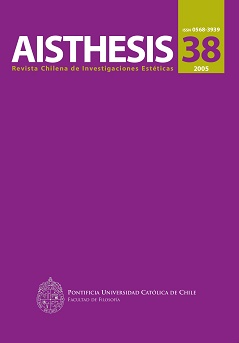Tradition, identity and vanguard in the Chilean music of the decade of 1960
Main Article Content
Abstract
This article explores the transformations that Chilean art music and popular music experimented during the 1960’s, considering the demands produced to the Chilean music by its social settings; the ways the new European influences were administrated; and the encounter between popular culture and the academy. To this effect, the cases of the art composers Juan Orrego Salas, Roberto Falabella, Sergio Ortega and Luis Advis, and of the popular musicians Violeta Parra, Víctor Jara and Quilapayún are considered. The article tries to define a Chilean plural identity through music, considering the artistic and popular musical expressions of the sixties, where both imitative and assimilative cultural practices, and synthetic and new cultural practices were expressed.
Downloads
Article Details

This work is licensed under a Creative Commons Attribution-NonCommercial-ShareAlike 4.0 International License.
All contents of this electronic edition are distributed under the Creative Commons license of "Attribución-shareAlike 4.0 Internacional" (CC-BY-SA). Any total or partial reproduction of the material must mention its origin.
The rights of academic works published in this publication belong to their authors., who grant to AISTHESIS: Revista Chilena de Investigaciones Estéticas the license for its use. The management of the permits and the authorization of the publication of the images (or of any material) that contains copyright and its consequent rights of reproduction in this publication is the sole responsibility of the authors of the articles
